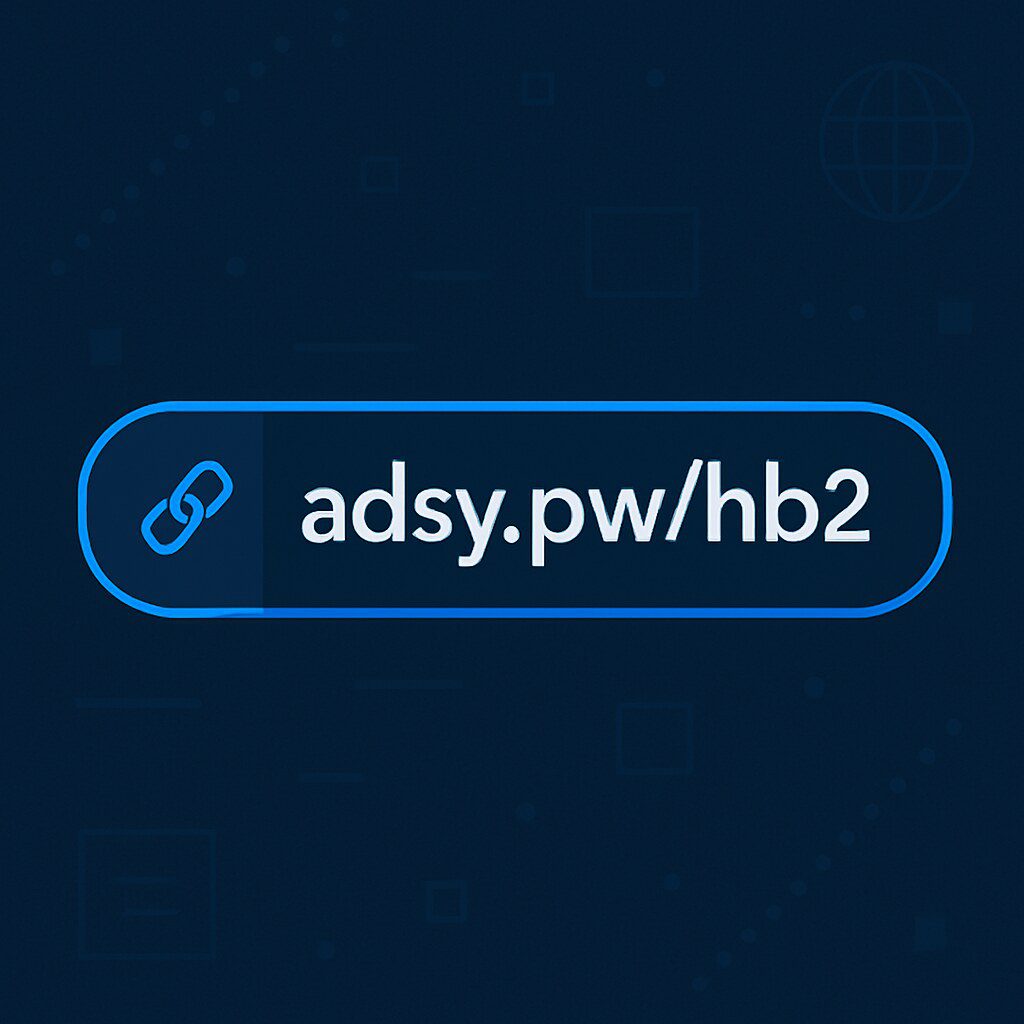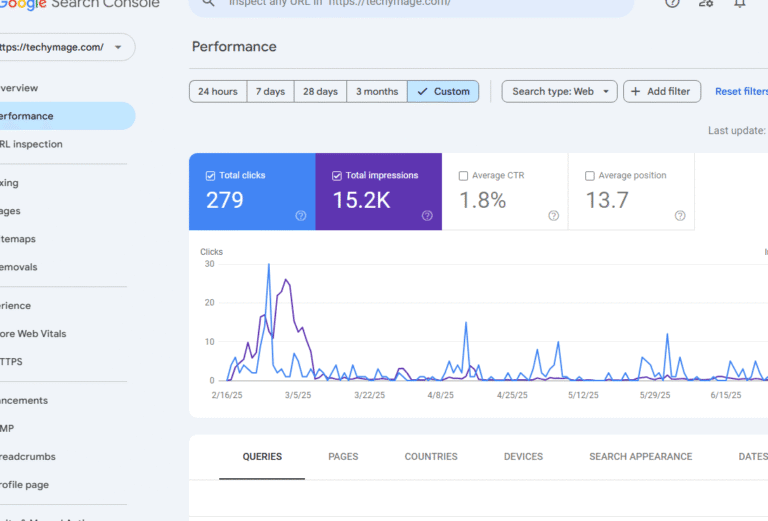
What Exactly is adsy.pw/hb2 and Why Should You Be Concerned?
If you’ve seen the link adsy.pw/hb2 when browsing the web you might wondering whether you should click on it or if it might actually be a risk to your online safety. You’re right to be concerned. These days suspicious links (like adsy.pw/hb2) can put you at risk of identity theft, malware infections, and financial fraud.
This article provides a deeper analysis of adsy.pw/hb2, including where it came from, the ways it can harm you, and what steps you need to take if you have already clicked on it. We compiled information from cybersecurity experts, end-user reports, and technical examinations to provide the most complete picture possible.
The Origins of adsy.pw/hb2 Explained
The domain adsy.pw is a part of the expansion of a referenced URL me(s)/ums) shortener/redirector and those have recently been abundant across social media, email pitch, and misleading advertisements. The “/hb2” (and variations of others such as adsy.pw/hb5) is likely targeting campaign or traffic/recognition parameters.
URL Shorteners: The Good, The Bad, and The Suspicious
URL shorteners aren’t bad! Legitimate services like Bitly or TinyURL have been widely used to create shorter links for sharing for many years. Shortened links can hide the actual destination, which is why they’re a perfect tool for cybercriminals.
What makes adsy.pw/hb2 especially worrisome is:
- It’s not attached to any established, reliable URL shortening service
- That domain has been associated with malicious activity in various user reports
- It usually appears in a context that attempts to create fooah or urgency
- The redirect chains and connections are complicated and difficult to ascertain
Red Flags: Why adsy.pw/hb2 Has Been Flagged as Potentially Harmful
Our investigation into adsy.pw/hb2 has uncovered several concerning patterns that suggest this link may be part of malicious campaigns. Here’s what we found:
Deceptive Distribution Methods
The link typically appears in contexts designed to manipulate users into clicking:
- Unwanted messages saying you won a prize or gift card
- Fake notifications about issues with your account or security problems
- “Exclusive offer” ads with unrealistic discounts
- Messages claiming to have compromising information about you
Technical Analysis of the Link Structure
When analyzing the technical aspects of adsy.pw/hb2, several concerning elements emerge:
- The domain uses a rarer TLD (.pw) that refers to the Pacific island nation of Palau, but due to the less stringent registration requirements, it’s also a domain that is more frequently used by spammers.
- The link spreads out through a series of links, and arrives at the destination in a convoluted manner that makes it difficult to figure out where it leads.
- The security tools are able to detect cases where those links through redirects lead to known phishing pages or malware download sites.
User Reports and Experiences
Across various online forums and complaint sites, users have reported negative experiences after clicking on adsy.pw links:
- Unwanted subscriptions to premium services
- Unauthorized charges appearing on credit cards
- Increased spam emails and text messages
- Device performance issues suggesting malware infection
Is adsy.pw/hb3 Different from adsy.pw/hb2?
A lot of other people have experienced adsy.pw/hb3, which seems to also be connected to adsy.pw/hb2. Our analysis indicates that these are potentially nothing but different campaign ID/tracking parameters on the same suspicious network.
Both links exhibit similar behavior:
- They use the same base domain (adsy.pw)
- They employ similar distribution tactics
- They follow comparable redirect patterns
- User reports indicate similar negative outcomes
The Potential Dangers of Clicking adsy.pw/hb2
If you click on adsy.pw/hb2, you could potentially face several serious risks:
Phishing Attempts
The link may lead to sophisticated phishing pages designed to:
- Mimic trusted websites like banking portals or social media platforms
- Trick you into entering login credentials or personal information
- Steal sensitive data including passwords and financial details
Malware and Ransomware Distribution
In some cases, these links have been connected to malware distribution:
- Drive-by downloads that install malicious software without your knowledge
- Deceptive prompts encouraging you to install fake updates or software
- Potential ransomware that could lock your files and demand payment
Subscription Traps and Financial Fraud
Many users report financial consequences after engaging with these links:
- Unknowingly signing up for premium subscriptions with recurring charges
- Providing credit card information to scammers
- Having payment details stolen and used fraudulently
What To Do If You’ve Already Clicked adsy.pw/hb2
If you’ve already clicked on this link, don’t panic. Take these immediate steps to protect yourself:
Immediate Security Measures
- Disconnect your device from the internet to prevent any further data transmission
- Run a full scan with reputable antivirus and anti-malware software
- Clear your browser cache, cookies, and browsing history
- Change passwords for any accounts you access regularly, especially financial accounts
- Monitor your accounts for any suspicious activity
Long-term Protection
To safeguard yourself against similar threats in the future:
- Keep your operating system and all software updated
- Install reliable security software that includes real-time protection
- Enable two-factor authentication on all important accounts
- Be skeptical of unsolicited messages containing links
- Verify the sender’s identity before clicking any links
How to Identify Similar Suspicious Links in the Future
Learning to spot potentially harmful links like adsy.pw/hb2 can help you avoid future threats. Here are key warning signs:
URL Red Flags
- Unusual or uncommon domain endings; (.pw, .top, .xyz etc.)
- Domains that resemble legitimate sites with slight misspellings
- Use of too many numbers or letters in the domain
- URLs that are too long or complicated
Context Clues
- Messages with exaggerated sense of urgency (ex. “act now!” or “limited time!”)
- Offers that seem too good to be true
- Appealing personal information
- Bad grammar, spelling, or formatting
- The sender’s address does not match the organization it claims to represent.
Expert Advice on Staying Safe Online
We bounced some ideas off some cyber specialists to get some suggestions for protecting yourself from threats, like adsy.pw/hb2:
Dr. Sarah Chen, Cybersecurity Researcher: “Cybercriminals love URL shorteners, because they obfuscate the destination. Never click on a shortened URL from an unknown or untrusted source, and do not click on shortened URLs that promise rewards or threaten potential consequences.”
Marcus Williams, Digital Security Consultant: “Treat suspicious links like adsy.pw/hb2 the same way you would treat a digital stranger, offering candy. No matter how tasty that candy may look, the risk of taking it far outweighs the reward.”
Best Practices for Online Safety
To help lower the chances of running into threats like adsy.pw/hb2:
- Try to manually enter website addresses instead of clicking links (if possible)
- Utilize your link expansion services to preview the shortened URL before you click
- Consider using a web reputation service that will warn you of malicious website
- Use different email addresses to protect different purposes (personal, shopping etc.)
- Regularly review and reveal for unauthorized charges on your financial statements.
Similar Scams and How They Compare to adsy.pw/hb2
adsy.pw/hb2 is just one example in a long line of similar online threats. Understanding the broader landscape can help you identify future risks:
Common URL Shortener Scams
- Bit.ly and TinyURL links as made by scammers, not the reputable services
- Custom shortened domains closely resembling a known brand (amzn.tq/deals instead of Amazon)
- Links convincing you that you need to verify your account or claiming rewards
Social Media Phishing Campaigns
- Direct messages with suspicious links
- Fake customer service accounts directing users external links
- Tag a friend and click here to win” promotions
Conclusion: The Verdict on adsy.pw/hb2
As a result of gathering extensive video evidence, adsy.pw/hb2 exhibits many of the traits you would find in malicious links and potential scams. The evidence strongly suggests you do not take this link:
- It utilizes deceptive distribution techniques
- Multiple users have reported for negative outcomes to them
- It shows technical characteristics of a phishing and malware distribution link
- It has no legitimate value while placing you in high risk area
The easiest thing to do is to steer clear of adsy.pw/hb2, adsy.pw/hb3, and other links like this. If you do receive links like these, always report as spam/phishing on that user’s platform.
Just know that real companies never send out important information to you via obscure shortened urls. If you do receive a message claiming to be from a company you do business with, it is always best to access the company directly instead of clicking on their links.
You can protect yourself from AGD.OF2, adsy.pw/hb2 and other threats by doing your research and practicing good digital hygiene and to think about other issues that lead to a more secure digital experience.
FAQs About adsy.pw/hb2
Q: Is clicking on adsy.pw/hb2 illegal?
A: Clicking on the link isn’t illegal, but it may be linked to illegal content, or scams that could compromise your security.
Q: Can I get infected just by clicking adsy.pw/hb2?
A: Yes, in some cases. Current malware can install via drive-by downloads without you doing anything.
Q: How do I know if I was infected after clicking on adsy.pw/hb2?
A: Look for indications like weird pop-ups, performance problems (slower), battery draining quickly over a short period of time or unusual charges on your accounts.
Q: Do I report ads.pw/hb2 links, if I get them?
A: Yes, report them to the place you receive them, and consider reporting them to other organizations like the Anti-Phishing Working Group.
Q: While there are technically ways to use adsy.pw links legitimately, did you find any evidence this was used in a legitimate business?
A: No. During our investigation, we found no evidence of legitimate business use for this domain.



